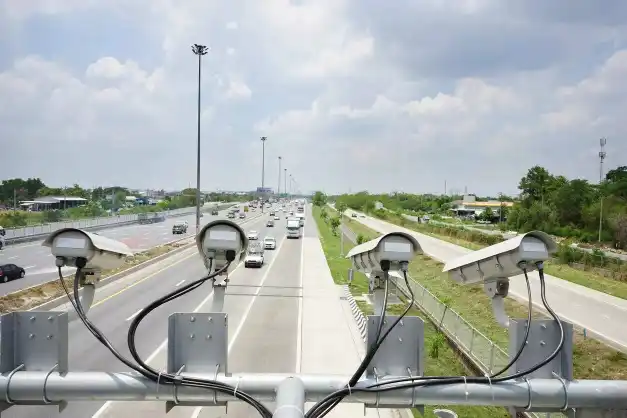Highly sensitive optical cameras and advanced sensors are set to become a common sight along Indian highways and expressways, as the National Highways Authority of India (NHAI) moves to implement a multi-lane free flow (MLFF) tolling system. This barrier-less tolling system will allow almost every vehicle to be processed without stopping, using FASTag and vehicle registration number (VRN) recognition.

MLFF Implementation Underway
Indian Highways Management Co Ltd (IHMCL), promoted by NHAI along with road concessionaires and financial institutions, has begun rolling out tenders for the MLFF system. It uses high-performance RFID (Radio Frequency Identification) readers and ANPR (Automatic Number Plate Recognition) cameras to facilitate seamless toll transactions.
Initially, about 25 National Highway toll plazas will adopt MLFF during the current financial year. Each project will involve a bank or financial entity and a system integrator responsible for installing and managing the tolling infrastructure.
“Seven or eight projects are already underway with banks such as ICICI Bank, Airtel Payment Bank, Jio Payments Platform, and IDFC First leading the bids for MLFF,” said Anuresh Sharma, COO of Arya Omnitalk, a company providing intelligent tolling solutions.
Three Key Elements
The successful rollout of MLFF depends on three critical components: the front ANPR camera, rear ANPR camera, and RFID reader on toll gantries.
“The FASTag has to be read, and the front license plate captured. Using optical character recognition (OCR) and artificial intelligence, we can accurately identify the vehicle registration number,” Sharma explained. “When the vehicle moves past the gantry, a rear license plate capture completes the process, giving us three inputs: front ANPR, rear ANPR, and the RFID reader.”
Advanced Technologies in Tolling
The system also leverages LiDAR (Light Detection and Ranging), a laser-enabled remote sensing technology, to classify vehicle types accurately. Transactions are transmitted to the respective bank or financial entity, which verifies the details with the National Payments Corporation of India (NPCI) and debits the FASTag wallet.
Currently operational only at publicly funded toll plazas, private highway operators are beginning to transition to MLFF, and future concession agreements are expected to make its adoption mandatory.With MLFF, Indian highways are set to enter a new era of seamless, AI-driven toll collection, improving traffic flow and enhancing efficiency across the national road network.
